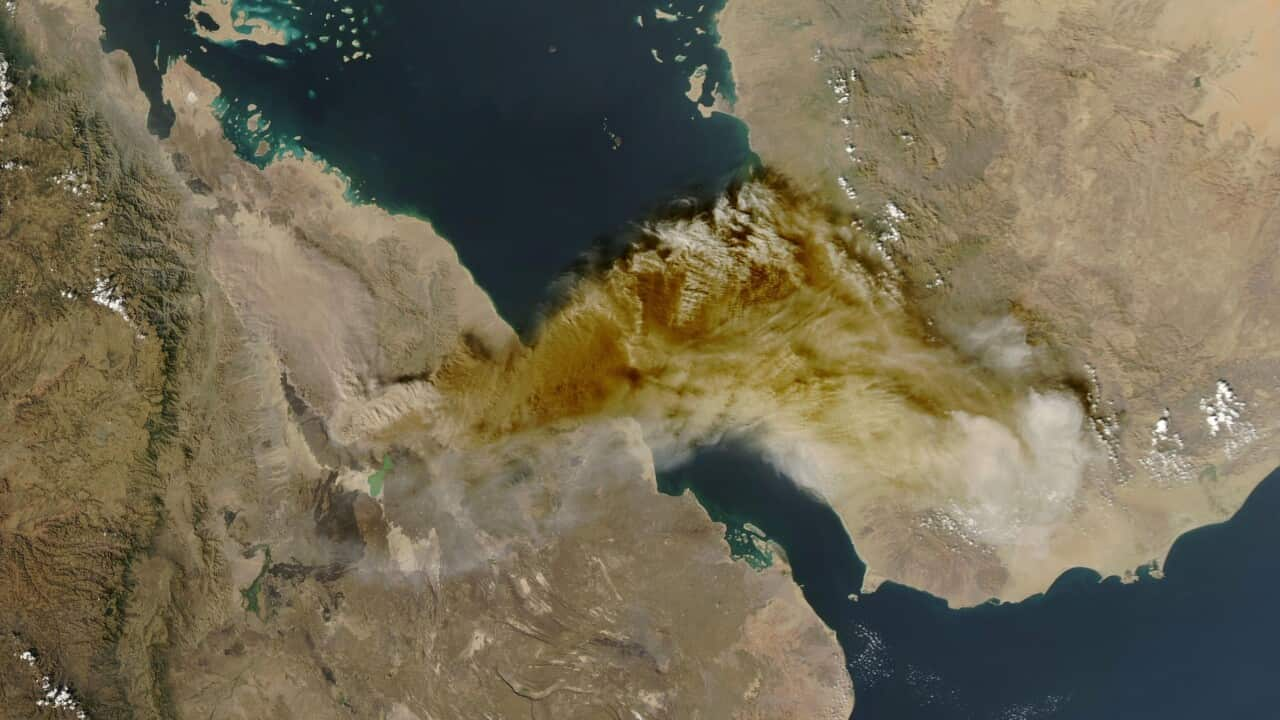Ash plumes from a volcanic eruption in Ethiopia have covered parts of Pakistan and northern India, forcing Air India and Akasa Air to cancel some flights as a precaution.
The Hayli Gubbi volcano in Ethiopia's Afar region erupted on Sunday for the first time in recorded history, sending ash plumes up to 14km into the sky, seismologists said.
The ash had blanketed parts of Pakistan and northern India on Tuesday after crossing Yemen and Oman, according to tracking website Flightradar24, and was moving towards China.
The India Meteorological Department said earlier it was expected to clear Indian skies later in the day.
Air India said it had cancelled 11 flights on Monday and Tuesday to make precautionary checks on aircraft that had flown over some locations after the eruption, following a directive to airlines from India's aviation regulator.
Smaller peer Akasa said it had scrapped scheduled flights to Middle East destinations such as Jeddah, Kuwait and Abu Dhabi scheduled during the two days.
India's Ministry of Civil Aviation said that only a few flights had been rerouted as a precautionary measure, and that the airports authority had issued a notice to all affected planes.
Are these kinds of eruptions common?
Ethiopia has about 50 active volcanoes, Atalay Ayele, a seismologist and researcher at the Institute of Geophysics, Space Science and Astronomy at Addis Ababa University, told the Reuters news agency.
"At any time, these volcanoes can be active or can show manifestations of activity," he said.
While volcanic eruptions in the Afar region are not new, he said there have not been records of the Hayli Gubbi volcano erupting previously.
Volcanic activity subsided on Tuesday but villages in the district of Afdera were covered in ash.
An official in charge of health in the area, Abedella Mussa, said the residents were coughing and mobile medical services from the larger Afar region had been launched in the remote area.
"Two medical teams have been dispatched to the affected kebeles (neighbourhoods) like Fia and Nemma-Gubi to provide mobile medical services," he said.
Another official in charge of livestock, Nuur Mussa, said animals were unable to find clean water or grass.
"Many animals, especially in the two affected kebeles, cannot drink clean water or feed on grass because it is covered by volcanic ash," he said.
For the latest from SBS News, download our app and subscribe to our newsletter.

